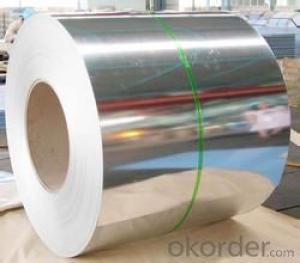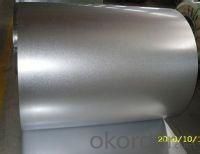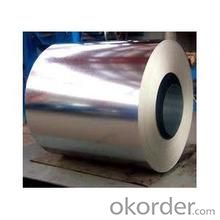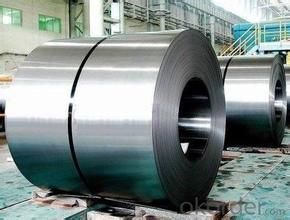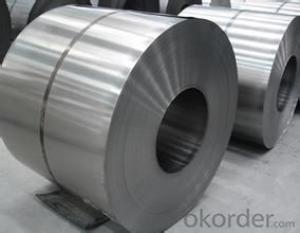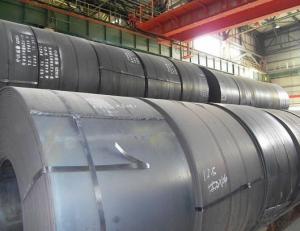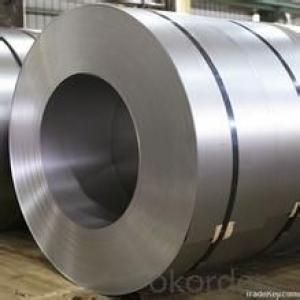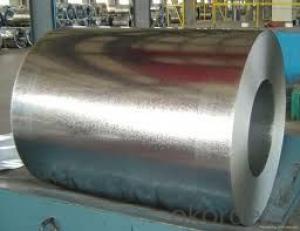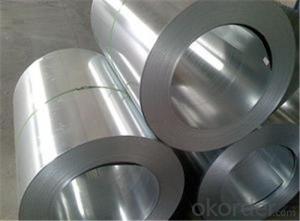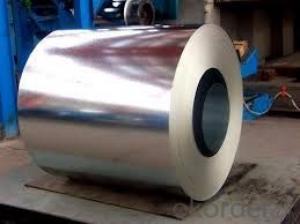hot-dip galvanized/ aluzinc steel SGC from CNBM
- Loading Port:
- Tianjin
- Payment Terms:
- TT OR LC
- Min Order Qty:
- 30 m.t.
- Supply Capability:
- 5000000 m.t./month
OKorder Service Pledge
OKorder Financial Service
You Might Also Like
Specification:
1.Mateials:SGCC,DX51D / DX52D /S250,280GD
2.Size:width:600-1250mm(900mm,1215mm,1250mm,1000mm the most common)
thickness:0.15-2.0mm
length:1000-6000mm,as your require
3.Zinc coating :60-180g( as required)
4.Coil id:508mm
5.Coil weight: 3-5MT(as required)
6. Surface:regular/mini/zero spangle, chromated, skin pass, dry etc.
Applications:
Galvalume Coil widely used for roofing products, It is also the ideal base material for Prepainted Steel Coil.
1. roofing
2. gutters
3. unexposed automotive parts
4. appliances
5. furniture
6. outdoor cabinetry
Images:
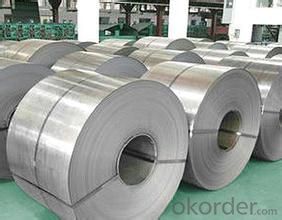
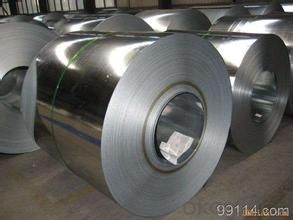
Hot-dip galvanized steel coils are available with a pure zinc coating through the hot-dip galvanizing process. It offers the economy, strength and formability of steel combined with the corrosion resistance of zinc. The hot-dip process is the process by which steel gets coated in layers of zinc to protect against rust. It is especially useful for countless outdoor and industrial applications.
- Q: The hard industrial steels. If there's a bunch, what's a rough average? Also, what is is measured in?
- There is no average, it depends on the type of steel (hundreds) and the (heat/surface) treatment (infinite possibilities). The Rockwell hardness range covers a large scale so for any given range there is a suffix (C is used for most steel) to denote the selected range. The number is a dimensionless constant that correlates to the strength of the material. Materials can also be surface (case) hardened and then the bulk material will be soft and the surface will be hard, this is typical for items like gears and cams that have rolling wear but are not very heavily stressed to require bulk hardness. Most steel that is hardened is first machined to size and then hardened. If more accuracy is required, they are machined to just over net size, hardened and then ground to the final size as the heat treatment can change the size and shape a little as stresses are released. Some examples: Very hard steel (e.g. a higher quality knife blade): HRC 55–66 Axes, chisels, etc.: HRC 40–45 4140 Cr Mb Steel HRC 28 - 36 , bulk hardened to HRC 54, Nitride case hardened to HRC 60 P20 tool steel can be bulk hardened to over HRC 55 and then tempered down from HRC 51 to 28
- Q: What is the role of steel coils in the production of storage shelves?
- Steel coils are used in the production of storage shelves to provide strength and durability. The coils are processed and shaped into various components of the shelf, such as the frame, shelves, and brackets. This ensures that the shelves are able to withstand heavy loads and maintain their structural integrity over time. Steel coils also offer corrosion resistance, making them suitable for use in storage environments.
- Q: So what's harder gold or steel
- steel. gold is pretty soft.
- Q: How are steel coils protected against bending and deformation?
- Steel coils are protected against bending and deformation through the use of robust packaging materials, such as wooden crates or steel strapping, which provide structural support and prevent any external pressure from causing damage. Additionally, steel coils may be stored and transported in specialized racks or containers designed to evenly distribute weight and minimize the risk of bending or deformation.
- Q: I have hundreds of pounds of scrap steel... who purchases this steel and what is the price per pound etc. of this? Does someone pick it up or do I bring it somewhere?
- Right now, steel is worth $150/ton. Who purchase it? Well, not every scrap yard handle steel, you have to call them up, or look at the company name that has the word steel or iron. But price can vary from each scrap yard. Try to call around. As for someone to pick it up, the scrap yard will mostly charge you a trucking fee and then the price for steel would be lower. But here is another bad thing if you have it pick up. I know some scrap yard are bad...reall bad..they will skim off some weight...a 1k lbs to 2k lbs. Wish you good luck!
- Q: How are steel coils used in the manufacturing of storage racks?
- Steel coils are used in the manufacturing of storage racks by being cut and formed into structural components, such as beams and columns, which provide the necessary strength and durability to support the weight of stored items. These coils are processed through various machines and techniques, including bending, welding, and painting, to create the final storage rack structures.
- Q: What are the different surface finishes of steel coils?
- There are several different surface finishes of steel coils, including mill finish, galvanized finish, painted finish, and coated finish.
- Q: What are the different grades of steel used in coil production?
- There are various grades of steel used in coil production, including low carbon steel, high carbon steel, stainless steel, and advanced high-strength steel. These grades are chosen based on the specific requirements of the application, such as strength, corrosion resistance, and formability.
- Q: Hey I just got a mini 14 manufactured in 1980. I also had some .223 Wolf steel cased HP rounds (about 200) that i could shoot throught it, but I was just wondering if its a bad idea to use this steel cased ammo...? Only the casing is steel i believe... and the bullet is copper jacketedthanks for your help
- I have used wolf steel cased ammunition as well when I borrowed my friend's AR-15. It's good ammunition and I personally have not experienced a stovepipe or a jam with the ammunition. A Mini 14 is a great .223 civilian rifle made by Ruger and should not jam with the ammunition. If the polymer coating really is a problem sometimes, just don't use it with knockoff AR-15s or Mini-14s but stick with the major manufacturers.
- Q: What are the common applications of galvalume steel coils?
- Galvalume steel coils have a wide range of applications due to their unique properties and durability. Some common applications of galvalume steel coils include: 1. Roofing: Galvalume steel coils are commonly used in the construction industry for roofing applications. The coating on these coils provides excellent corrosion resistance, making them ideal for protecting roofs from harsh weather conditions and extending their lifespan. 2. Siding: Galvalume steel coils are also used for siding applications in residential, commercial, and industrial buildings. The durability of these coils makes them suitable for withstanding external elements, such as rain, wind, and sunlight, without corroding or deteriorating. 3. Gutters and Downspouts: Galvalume steel coils are extensively used in gutter and downspout systems. The corrosion-resistant properties of these coils ensure that gutters and downspouts remain functional and aesthetically pleasing for a longer period, saving homeowners from frequent replacements or repairs. 4. Appliances: Many household appliances, such as refrigerators, ovens, and washing machines, utilize galvalume steel coils. The corrosion resistance and high heat reflectivity of these coils make them an excellent choice for manufacturing durable and energy-efficient appliances. 5. Automotive Industry: Galvalume steel coils find applications in the automotive industry for manufacturing parts like body panels, chassis, and exhaust systems. The lightweight nature and corrosion resistance of these coils contribute to fuel efficiency and the overall durability of vehicles. 6. HVAC Systems: Heating, ventilation, and air conditioning (HVAC) systems often use galvalume steel coils for components like ductwork and air handling units. The coils' ability to withstand high temperatures and resist corrosion ensures the longevity and efficiency of HVAC systems. 7. Agricultural Equipment: Galvalume steel coils are used in the manufacturing of agricultural equipment, such as grain storage bins, barns, and sheds. These coils provide excellent protection against rust, ensuring that the equipment remains durable and reliable in agricultural environments. Overall, galvalume steel coils have a wide range of applications across various industries due to their corrosion resistance, durability, and ability to withstand harsh environmental conditions.
Send your message to us
hot-dip galvanized/ aluzinc steel SGC from CNBM
- Loading Port:
- Tianjin
- Payment Terms:
- TT OR LC
- Min Order Qty:
- 30 m.t.
- Supply Capability:
- 5000000 m.t./month
OKorder Service Pledge
OKorder Financial Service
Similar products
Hot products
Hot Searches
Related keywords
